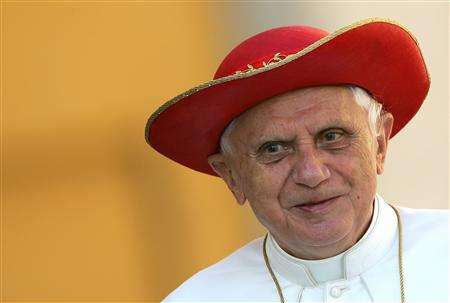Roman Ecclesiology and Protestants

There has been a lot of confusion surrounding the recent document issued by the Congregation for the Doctrine of the Faith regarding the status of Protestant denominations. The document explains that these communities are not churches “in the proper sense of the word.” This isn’t new. It goes back to the Reformation and was restated in the 2000 document Dominus Jesus.
In Catholic parlance, Protestant denominations are officially “ecclesial communities” and not formal “churches”. This means that they are voluntary associations of real Christians.
If you think about it though, Protestant denominations explicitly define themselves as “voluntary associations”. It’s not like the Presbyterian Church in America or the Southern Baptist Convention has any real authority over its faithful. They only do if you agree they do. If you don’t like what they are doing or saying, they tell you that you’re free to go to a Methodist parish or an Evangelical fellowship. In other words, the denomination’s authority is based on volunteerism.
The Catholic Church claims to have authority over the baptized whether a person acknowledges it or not. E.g. the Pope believes that he is the Pope of every baptized person.
Moreover, the main point of the document is to reinstate the clear biblical doctrine that Christ instituted only one Church and not a plurality of differing denominations. I think we can all agree that Christ did institute only one Church – we just disagree on how that phenomenon is apprehended in the third millennium.
We might also remember that the Catholic Church defines the Church as a visible reality that is historically connected to Christ and His twelve Apostles through Holy Baptism and Apostolic Succession. The latter term refers to the unbroken chain of ordinations extending from the Apostles to the modern day bishops of the Church. This unbroken chain of ordinations ensures that these men receive the promises of Christ: 1) to “bind on earth” through doctrine and discipline; 2) to “forgive sins” (Jn 20:19-21); and to have authority to celebrate the Sacraments, chiefly the Holy Sacrifice of the Mass.
Protestants reject all those things so they shouldn’t be offended that the Catholic Church says they are not “proper churches”. Protestants don’t want all that stuff, so they shouldn’t be offended when Catholicism points out to them that they don’t possess these gifts, powers, and authority. To be “Protestant” is to “protest” these things in the first place.
Dive Deeper

GET CONFIDENT IN YOUR FAITH
Explore the fascinating world of Catholic teachings with Dr. Marshall. Together you’ll unpack the brilliant answers the Church gives to tough questions about the Faith. The best part: you go at your own pace. Start this exciting journey today.
